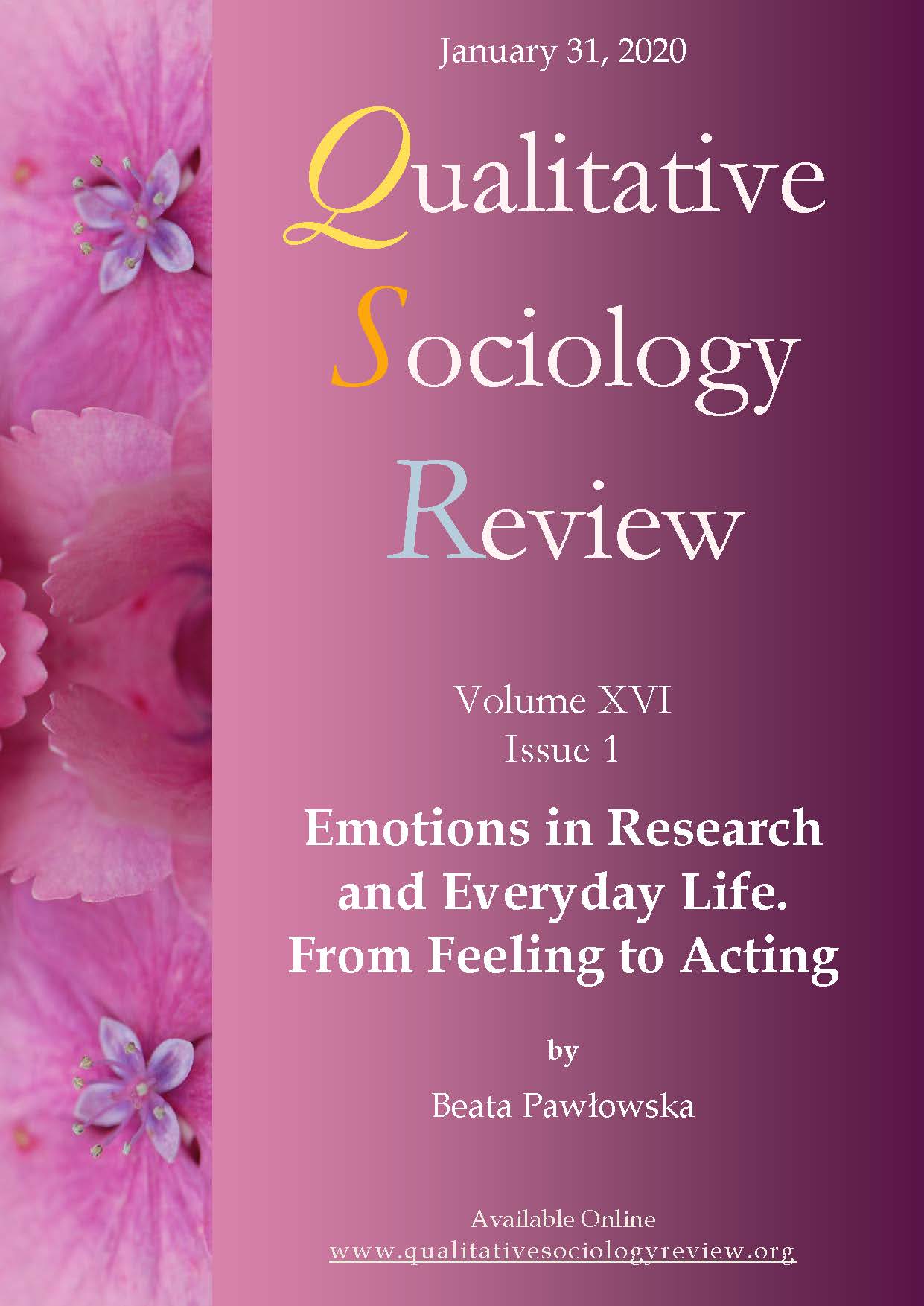Emotions in Research and Everyday Life. From Feeling to Acting
DOI:
https://doi.org/10.18778/1733-8077.16.1.01Downloads
References
Binder, Piotr, Hanna Palska, and Wojciech Pawlik (eds.). 2009. Emocje a kultura i życie społeczne [Emotions and Culture and Social Life]. Warsaw: Wydawnictwo IFiS PAN.
Google Scholar
Collins, Randall. 1975. Conflict Sociology: Toward an Explanatory Science. New York: Cambridge University Press.
Google Scholar
Collins, Randall. 1981. “On the Micro-Foundations of Macro-Sociology.” American Journal of Sociology 86:984-1014.
Google Scholar
DOI: https://doi.org/10.1086/227351
Ekman, Paul and Richard J. Davidson. 1994. The Nature of Emotion. Fundamental Questions. Oxford: Oxford University Press.
Google Scholar
Ekman, Paul and Richard J. Davidson. 2012. Natura emocji. Podstawowe zagadnienia [The Nature of Emotion. Fundamental Questions]. Sopot: Gdańskie Wydawnictwo Psychologiczne.
Google Scholar
Goffman, Erving. 1961. Encounters: Two Studies in the Sociology of Interaction. Indianapolis: Bobbs-Merrill.
Google Scholar
Goffman, Erving. 1967. Interaction Ritual. Garden City, NY: Doubleday/Anchor.
Google Scholar
Goffman, Erving. 1974. Frame Analysis: An Essay on the Organization of Experience. New York: Harper and Row.
Google Scholar
Goffman, Erving. 2006. Rytuał interakcyjny [Interaction Ritual]. Warsaw: Wydawnictwo Naukowe PWN.
Google Scholar
Goleman, Daniel. 1995. Emotional Intelligence. New York: Bantam Books.
Google Scholar
Goleman, Daniel. 1997. Inteligencja emocjonalna [Emotional Intelligence]. Poznan: Media Rodzina of Poznań.
Google Scholar
Hochschild, Arlie R. 1983. The Managed Heart: Commercialization of Human Feeling. Berkeley, CA: University of California Press.
Google Scholar
Hochschild, Arlie R. 2009. Zarządzanie emocjami. Komercjalizacja ludzkich uczuć [The Managed Heaart: Commercialization of Human Feeling]. Warsaw: Wydawnictwo Naukowe PWN.
Google Scholar
Kemper, Theodore D. 1978. A Social Interactional Theory of Emotions. New York: Wiley.
Google Scholar
Kemper, Theodore D. 1991. “Predicting Emotions from Social Relations.” Social Psychology Quarterly 54:330-342.
Google Scholar
DOI: https://doi.org/10.2307/2786845
Pawłowska, Beata. 2013. Emocje społeczne w pracy nauczyciela i przedstawiciela handlowego [Social Emotions in the Work of Teachers and Salesmen]. Lodz: Wydawnictwo Uniwersytetu Łódzkiego.
Google Scholar
DOI: https://doi.org/10.18778/7525-862-2
Salovey, Peter and David J. Sluyter (eds.). 1990. Rozwój emocjonalny a inteligencja emocjonalna: Problemy edukacyjne [Emotional Development and Emotional Intelligence: Educational Implications]. Poznan: Dom Wydawniczy “Rebis.”
Google Scholar
Scheff, Thomas J. 1979. Catharsis in Healing. Ritual and Drama. Berkeley, CA: University of California Press.
Google Scholar
Scheff, Thomas J. 1988. “Shame and Conformity: The Deference Emotion System.” American Sociological Review 53:395-406.
Google Scholar
DOI: https://doi.org/10.2307/2095647
Scheff, Thomas J. 1990. Microsociology. Discourse, Emotion, and Social Structure. Chicago: University of Chicago Press.
Google Scholar
Shott, Susan. 1979. “Emotion and Social Life: A Symbolic Interactionist Analysis.” American Journal of Sociology 84:1317-1334.
Google Scholar
DOI: https://doi.org/10.1086/226936
Wisecup, Allison K., Dawn T. Robinson, and Lynn Smith-Lovin. 2006. “Sociology of Emotions.” Pp. 106-115 in The Handbook of the 21st Century Sociology, edited by C. D. Bryant and D. L. Peck. Thousand Oaks, CA: Sage.
Google Scholar
DOI: https://doi.org/10.4135/9781412939645.n70
Downloads
Published
How to Cite
Issue
Section
License

This work is licensed under a Creative Commons Attribution-NonCommercial-NoDerivatives 4.0 International License.











